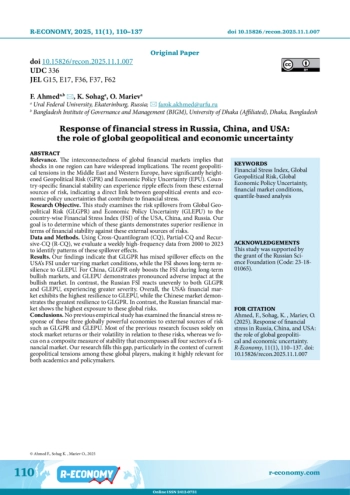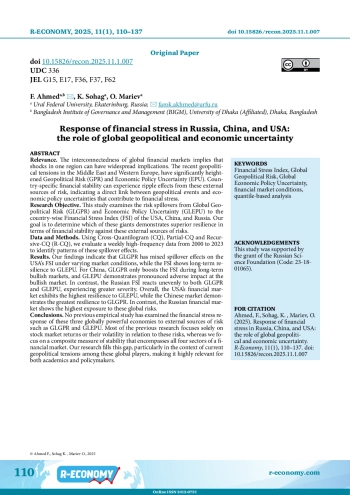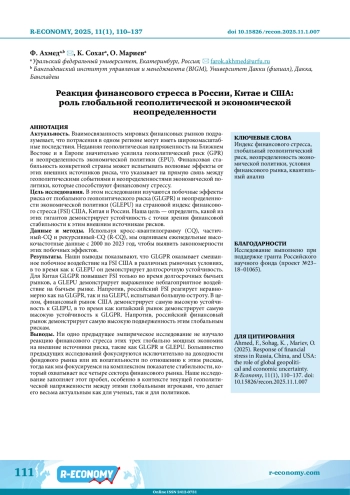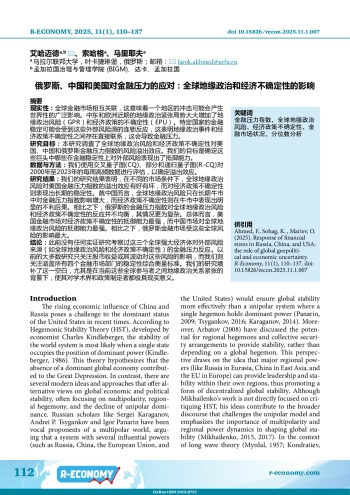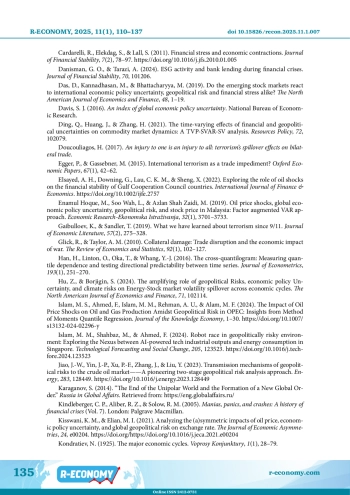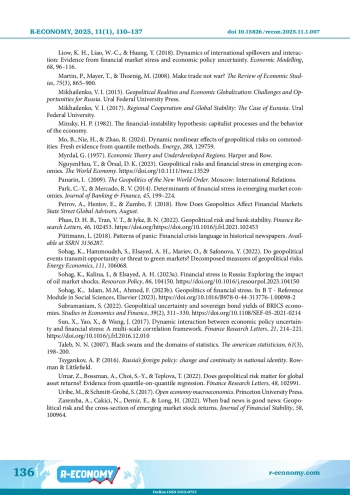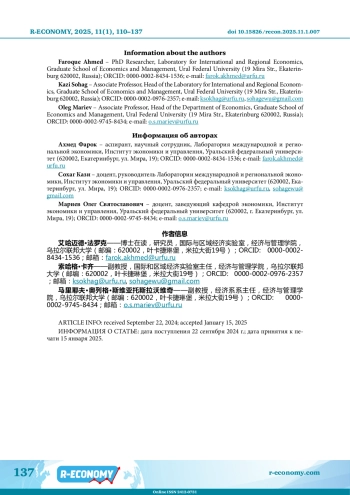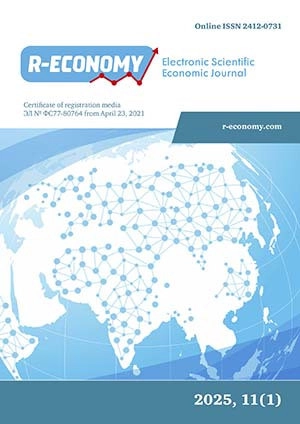Relevance. The interconnectedness of global financial markets implies that shocks in one region can have widespread implications. The recent geopolitical tensions in the Middle East and Western Europe, have significantly heightened Geopolitical Risk (GPR) and Economic Policy Uncertainty (EPU). Country-specific financial stability can experience ripple effects from these external sources of risk, indicating a direct link between geopolitical events and economic policy uncertainties that contribute to financial stress. Research Objective. This study examines the risk spillovers from Global Geopolitical Risk (GLGPR) and Economic Policy Uncertainty (GLEPU) to the country-wise Financial Stress Index (FSI) of the USA, China, and Russia. Our goal is to determine which of these giants demonstrates superior resilience in terms of financial stability against these external sources of risks. Data and Methods. Using Cross-Quantilogram (CQ), Partial-CQ and Recursive-CQ (R-CQ), we evaluate a weekly high-frequency data from 2000 to 2023 to identify patterns of these spillover effects. Results. Our findings indicate that GLGPR has mixed spillover effects on the USA’s FSI under varying market conditions, while the FSI shows long-term resilience to GLEPU. For China, GLGPR only boosts the FSI during long-term bullish markets, and GLEPU demonstrates pronounced adverse impact at the bullish market. In contrast, the Russian FSI reacts unevenly to both GLGPR and GLEPU, experiencing greater severity. Overall, the USA’s financial market exhibits the highest resilience to GLEPU, while the Chinese market demonstrates the greatest resilience to GLGPR. In contrast, the Russian financial market shows the highest exposure to these global risks. Conclusions. No previous empirical study has examined the financial stress response of these three globally powerful economies to external sources of risk such as GLGPR and GLEPU. Most of the previous research focuses solely on stock market returns or their volatility in relation to these risks, whereas we focus on a composite measure of stability that encompasses all four sectors of a financial market. Our research fills this gap, particularly in the context of current geopolitical tensions among these global players, making it highly relevant for both academics and policymakers.
Идентификаторы и классификаторы
The rising economic influence of China and Russia poses a challenge to the dominant status of the United States in recent times. According to Hegemonic Stability Theory (HST), developed by economist Charles Kindleberger, the stability of the world system is most likely when a single state occupies the position of dominant power (Kindleberger, 1986). This theory hypothesizes that the absence of a dominant global economy contributed to the Great Depression. In contrast, there are several modern ideas and approaches that offer alternative views on global economic and political stability, often focusing on multipolarity, regional hegemony, and the decline of unipolar dominance. Russian scholars like Sergei Karaganov, Andrei P. Tsygankov and Igor Panarin have been vocal proponents of a multipolar world, arguing that a system with several influential powers (such as Russia, China, the European Union, and the United States) would ensure global stability more effectively than a unipolar system where a single hegemon holds dominant power (Panarin, 2009; Tsygankov, 2016; Karaganov, 2014).
Список литературы
1. Adebayo T. S., Saint Akadiri S., Rjoub H. (2022). On the relationship between economic policy uncertainty, geopolitical risk and stock market returns in South Korea: a quantile causality analysis. Annals of Financial Economics, 17(1), 2250005.
2. Ahmed F. (2024). Dynamic spillovers of various uncertainties to Russian financial stress: Evidence from quantile dependency and frequency connectedness approaches. Russian Journal of Economics, 10(3), 246-273. https://doi.org/10.32609/j.ruje.10.126926.
3. Ahmed F., Gurdgiev C., Sohag K., Islam M. M., Zeqiraj V. (2024a). Global, local, or glocal? Unravelling the interplay of geopolitical risks and financial stress. Journal of Multinational Financial Management, 75, 100871. https://doi.org/10.1016/j.mulfin.2024.100871.
4. Ahmed F., Islam M. M., Abbas S. (2024b). Assessing the impact of Russian-Ukrainian geopolitical risks on global green finance: a quantile dependency analysis. Environmental Economics and Policy Studies, 1-27. https://doi.org/10.1007/s10018-024-00395-3.
5. Ahmed F., Sohag K., Islam M. M., Hassan M. K. (2025). Navigating turbulence: How do geopolitical risks and oil price shocks shape global equity markets? A GVAR approach. Borsa Istanbul Review. https://doi.org/10.1016/j.bir.2025.01.016.
6. Arbatov A. (2008). Globalization and the Future of Russia: International Relations in the 21st Century. Moscow: Institute of World Economy and International Relations (IMEMO).
7. Apostolakis G. N., Floros C., Gkillas K., Wohar M. (2021). Financial stress, economic policy uncertainty, and oil price uncertainty. Energy Economics, 104, 105686.
8. Asia Regional Integration Center. (2023). Financial Stress Index. Asia Regional Integration Center. https://aric.adb.org/database/fsi.
9. Balakrishnan R., Danninger S., Elekdag S., Tytell I. (2011). The transmission of financial stress from advanced to emerging economies. Emerging Markets Finance and Trade, 47(sup2), 40-68.
10. Balcilar M., Bonato M., Demirer R., Gupta R. (2018). Geopolitical risks and stock market dynamics of the BRICS. Economic Systems, 42(2), 295-306.
11. Baur D. G., McDermott T. K. J. (2016). Why is gold a safe haven? Journal of Behavioral and Experimental Finance, 10, 63-71. https://doi.org/https://doi.org/10.1016/j.jbef.2016.03.002.
12. Baur,D. G., Smales L. A. (2020). Hedging geopolitical risk with precious metals. Journal of Banking & Finance, 117, 105823. https://doi.org/10.1016/j.jbankfin.2020.105823.
13. Bossman A., Gubareva M. (2023). Asymmetric impacts of geopolitical risk on stock markets: A comparative analysis of the E7 and G7 equities during the Russian-Ukrainian conflict. Heliyon, 9(2).
14. Bossman A., Gubareva M., Teplova T. (2023). Asymmetric effects of geopolitical risk on major currencies: Russia-Ukraine tensions. Finance Research Letters, 51, 103440. https://doi.org/https://doi.org/10.1016/j.frl.2022.103440.
15. Caldara D., Iacoviello M. (2022). Measuring Geopolitical Risk. American Economic Review, 112(4), 1194-1225. https://doi.org/10.1257/aer.20191823.
16. Cardarelli R., Elekdag S., Lall S. (2011). Financial stress and economic contractions. Journal of Financial Stability, 7(2), 78-97. https://doi.org/10.1016/j.jfs.2010.01.005.
17. Danisman G. O., Tarazi A. (2024). ESG activity and bank lending during financial crises. Journal of Financial Stability, 70, 101206.
18. Das D., Kannadhasan M., Bhattacharyya M. (2019). Do the emerging stock markets react to international economic policy uncertainty, geopolitical risk and financial stress alike? The North American Journal of Economics and Finance, 48, 1-19.
19. Davis S. J. (2016). An index of global economic policy uncertainty. National Bureau of Economic Research.
20. Ding Q., Huang J., Zhang H. (2021). The time-varying effects of financial and geopolitical uncertainties on commodity market dynamics: A TVP-SVAR-SV analysis. Resources Policy, 72, 102079.
21. Doucouliagos H. (2017). An injury to one is an injury to all: terrorism’s spillover effects on bilateral trade.
22. Egger P., Gassebner M. (2015). International terrorism as a trade impediment? Oxford Economic Papers, 67(1), 42-62.
23. Elsayed A. H., Downing G., Lau C. K. M., Sheng X. (2022). Exploring the role of oil shocks on the financial stability of Gulf Cooperation Council countries. International Journal of Finance & Economics. https://doi.org/10.1002/ijfe.2757.
24. Enamul Hoque M., Soo Wah L., Azlan Shah Zaidi M. (2019). Oil price shocks, global economic policy uncertainty, geopolitical risk, and stock price in Malaysia: Factor augmented VAR approach. Economic Research-Ekonomska Istraživanja, 32(1), 3701-3733.
25. Gaibulloev K., Sandler T. (2019). What we have learned about terrorism since 9/11. Journal of Economic Literature, 57(2), 275-328.
26. Glick R., Taylor A. M. (2010). Collateral damage: Trade disruption and the economic impact of war. The Review of Economics and Statistics, 92(1), 102-127.
27. Han H., Linton O., Oka T., Whang Y.-J. (2016). The cross-quantilogram: Measuring quantile dependence and testing directional predictability between time series. Journal of Econometrics, 193(1), 251-270.
28. Hu Z., Borjigin S. (2024). The amplifying role of geopolitical Risks, economic policy Uncertainty, and climate risks on Energy-Stock market volatility spillover across economic cycles. The North American Journal of Economics and Finance, 71, 102114.
29. Islam M. S., Ahmed F., Islam M. M., Rehman A. U., Alam M. F. (2024). The Impact of Oil Price Shocks on Oil and Gas Production Amidst Geopolitical Risk in OPEC: Insights from Method of Moments Quantile Regression. Journal of the Knowledge Economy, 1-30. https://doi.org/10.1007/s13132-024-02296-y.
30. Islam M. M., Shahbaz M., Ahmed F. (2024). Robot race in geopolitically risky environment: Exploring the Nexus between AI-powered tech industrial outputs and energy consumption in Singapore. Technological Forecasting and Social Change, 205, 123523. https://doi.org/10.1016/j.techfore.2024.123523.
31. Jiao J.-W., Yin J.-P., Xu P.-F., Zhang J., Liu Y. (2023). Transmission mechanisms of geopolitical risks to the crude oil market--A pioneering two-stage geopolitical risk analysis approach. Energy, 283, 128449. https://doi.org/10.1016/j.energy.2023.128449.
32. Karaganov S. (2014). “The End of the Unipolar World and the Formation of a New Global Order.” Russia in Global Affairs. Retrieved from: https://eng.globalaffairs.ru/.
33. Kindleberger C. P., Aliber R. Z., Solow R. M. (2005). Manias, panics, and crashes: A history of financial crises (Vol. 7). London: Palgrave Macmillan.
34. Kisswani K. M., Elian M. I. (2021). Analyzing the (a)symmetric impacts of oil price, economic policy uncertainty, and global geopolitical risk on exchange rate. The Journal of Economic Asymmetries, 24, e00204. https://doi.org/https://doi.org/10.1016/j.jeca.2021.e00204.
35. Kondratiev N. (1925). The major economic cycles. Voprosy Konjunktury, 1(1), 28-79.
36. Liow K. H., Liao W.-C., Huang Y. (2018). Dynamics of international spillovers and interaction: Evidence from financial market stress and economic policy uncertainty. Economic Modelling, 68, 96-116.
37. Martin P., Mayer T., Thoenig M. (2008). Make trade not war? The Review of Economic Studies, 75(3), 865-900.
38. Mikhailenko V. I. (2015). Geopolitical Realities and Economic Globalization: Challenges and Opportunities for Russia. Ural Federal University Press.
39. Mikhailenko V. I. (2017). Regional Cooperation and Global Stability: The Case of Eurasia. Ural Federal University.
40. Minsky H. P. (1982). The financial-instability hypothesis: capitalist processes and the behavior of the economy.
41. Mo B., Nie H., Zhao R. (2024). Dynamic nonlinear effects of geopolitical risks on commodities: Fresh evidence from quantile methods. Energy, 288, 129759.
42. Myrdal G. (1957). Economic Theory and Underdeveloped Regions. Harper and Row.
43. NguyenHuu T., Örsal D. K. (2023). Geopolitical risks and financial stress in emerging economies. The World Economy. https://doi.org/10.1111/twec.13529.
44. Panarin I. (2009). The Geopolitics of the New World Order. Moscow: International Relations.
45. Park C.-Y., Mercado R. V. (2014). Determinants of financial stress in emerging market economies. Journal of Banking & Finance, 45, 199-224.
46. Petrov, A., Hentov E., Zumbo F. (2018). How Does Geopolitics Affect Financial Markets. State Street Global Advisors, August.
47. Phan D. H. B., Tran V. T., Iyke B. N. (2022). Geopolitical risk and bank stability. Finance Research Letters, 46, 102453. https://doi.org/https://doi.org/10.1016/j.frl.2021.102453.
48. Püttmann L. (2018). Patterns of panic: Financial crisis language in historical newspapers. Available at SSRN 3156287.
49. Sohag K., Hammoudeh S., Elsayed A. H., Mariev O., Safonova Y. (2022). Do geopolitical events transmit opportunity or threat to green markets? Decomposed measures of geopolitical risks. Energy Economics, 111, 106068.
50. Sohag K., Kalina I., Elsayed A. H. (2023a). Financial stress in Russia: Exploring the impact of oil market shocks. Resources Policy, 86, 104150. https://doi.org/10.1016/j.resourpol.2023.104150.
51. Sohag K., Islam M. M., Ahmed, F. (2023b). Geopolitics of financial stress. In B T - Reference Module in Social Sciences, Elsevier (2023), https://doi.org/10.1016/B978-0-44-313776-1.00098-2.
52. Subramaniam S. (2022). Geopolitical uncertainty and sovereign bond yields of BRICS economies. Studies in Economics and Finance, 39(2), 311-330. https://doi.org/10.1108/SEF-05-2021-0214.
53. Sun X., Yao X., Wang J. (2017). Dynamic interaction between economic policy uncertainty and financial stress: A multi-scale correlation framework. Finance Research Letters, 21, 214-221. https://doi.org/10.1016/j.frl.2016.12.010.
54. Taleb N. N. (2007). Black swans and the domains of statistics. The american statistician, 61(3), 198-200.
55. Tsygankov A. P. (2016). Russia’s foreign policy: change and continuity in national identity. Rowman & Littlefield.
56. Umar Z., Bossman A., Choi S.-Y., Teplova T. (2022). Does geopolitical risk matter for global asset returns? Evidence from quantile-on-quantile regression. Finance Research Letters, 48, 102991.
57. Uribe M., Schmitt-Grohé S. (2017). Open economy macroeconomics. Princeton University Press.
58. Zaremba A., Cakici N., Demir E., Long H. (2022). When bad news is good news: Geopolitical risk and the cross-section of emerging market stock returns. Journal of Financial Stability, 58, 100964.
Выпуск
Другие статьи выпуска
Relevance. Similar to other countries, Indonesia’s economy was significantly impacted by the COVID-19 pandemic, especially at the district and city levels. As the second-largest contributor to Indonesia’s GDP, East Java faced noticeable economic downturns. Industry, the region’s main economic sector, played a key role in these challenges, making it essential to evaluate all sectors from a regional economic perspective to navigate this turbulence effectively. Research objective. This study investigates the regional economy’s sectoral competitiveness in East Java, with a particular focus on the 17 sectors categorized by Statistic Indonesia (Badan Pusat Statistik-BPS) before and after COVID-19. Data and methods. The study relies on data from Badan Pusat Statistik (BPS)). The dataset includes GDP information for 11 regions, namely 7 districts and 4 cities, in East Java from 2018 to 2022, covering the pre- and post-pandemic periods. Methodologically, the study employed Location Quotient (LQ) analysis and Mix and Share Analysis. LQ analysis was used to assess the concentration and comparative advantage of East Java’s regions. Mix and Share and Shift-Share analyses were applied to identify the competitive industries in specific regions and their advantages. Results. The findings show positive economic growth in most regions of East Java before and after the pandemic, except for two regencies that saw a decline. The study emphasizes the need to strengthen regional resilience at the village level using the Village Fund from the national budget. Conclusions. Regional stakeholders, central government interventions, and continued development of leading sectors are essential for mitigating the effects of COVID-19. According to regional economic theory, collaboration between the government and businesses is crucial for enhancing competitive advantage and increasing the number of leading sectors.
Relevance. The digital economy and the digitalization of business and public administration are progressing rapidly in Russia. However, significant disparities in ICT access, usage, and outcomes between regions persist, potentially contributing to widening socio-economic inequalities. Research objective. This study aims to demonstrate that digital skills are a key factor in regional development. It tests the hypothesis that regions with disparities in Internet adoption and digital skills also experience disparities in regional development, as reflected in key socio-economic indicators. Additionally, the study analyzes the impact of digital skills on per capita income and unemployment. Data and methods. The study uses data from a sociological survey conducted by the Federal Statistics Service (Rosstat) and the Higher School of Economics to characterize the digital skills of the population. Principal component analysis is applied to construct a composite index, the Internet Adoption Index, which reflects both the accessibility and use of the Internet across Russian regions. This index, alongside digital skills data, is used to group regions. Two-sample t-tests for equal and unequal variances are employed for initial comparisons of regional indicators. In the second stage, regression analysis is used to test the hypothesis that without improved digital skills, access to ICT does not lead to higher personal income or lower unemployment. Results. The study reveals that only 12 out of the considered 83 Russian regions exhibit relatively high levels of Internet adoption and above-average digital skills. Despite well-developed infrastructure, many regions still have low levels of digital proficiency. The age and gender structure of the population have little impact on regional digital skills. However, regions with greater access to the Internet and higher digital skills show higher economic growth, higher incomes, and lower unemployment. Conclusion. The findings provide strong evidence that digital skills are closely linked to socio-economic development. The results highlight the importance of policies aimed at improving digital literacy, particularly as the digital economy continues to expand.
Relevance. Uneven spatial development is a common challenge for all countries, driven by both subjective and objective factors. The issue lies not in regional disparities themselves but in their growing intensity. Amid crises and economic turbulence, it is crucial to have tools to assess the risks of increasing spatial unevenness and widening socio-economic disparities between regions. Research Objective. This study aims to develop and test a tool for estimating the risks of uneven spatial development in Russia’s macroregions and the growing differentiation of regions by socio-economic level, using the Urals-Siberian macroregion as a case study. Data and Methods. A two-stage approach is proposed to evaluate spatial development in terms of uniformity and regional differentiation by socio-economic level and growth rate. In the first stage, the probability of a socio-economic decline is estimated based on key indicators (risk factors) and their dynamic indices. In the second stage, the probability of an increasing variation coefficient within a macroregion, reflecting rising disparities in socio-economic development, is analyzed. A multifactor risk model is used for analysis. The study relies on data from the Federal State Statistics Service (Rosstat) covering the period from 2000 to 2022. Results. Applying this approach to the Urals-Siberian macroregion revealed persistent spatial unevenness throughout the study period, primarily due to the specialization of regions, which stabilizes their relative positions. However, during crises, spatial disparities tend to widen as regions demonstrate varying adaptive capacities and resilience - some not only recover but also improve their positions. Conclusion. The proposed tool assesses risks linked to uneven development and growing regional disparities, offering insights for sustainable macroregional strategies. The findings emphasize the need to consider regions’ specificities and adaptive capacities in spatial development policies.
Relevance. As interregional competition intensifies, state support for innovation in regional economies becomes increasingly important. To improve the effectiveness of such support, it is necessary to gain a better understanding of the link between innovation and economic development. Research Objective. The study aims to assess the impact of innovation activity on regional economic growth, focusing on the case of a large industrial region in Russia. Data and Methods. The analysis uses socio-economic data for Sverdlovsk region from 2000 to 2023 and applies an autoregressive distributed lag (ARDL) model to assess the relationship between innovation and economic performance. The study introduces an Innovation Activity Index, which incorporates several key components, such as the number of research personnel, internal R&D expenditures, and other relevant indicators, for a more comprehensive evaluation. Results. The study traces the region’s innovation activity, revealing a general upward trend. However, while innovation clearly has a positively influence on economic growth in the short term, its effects over medium- and long-term periods are less obvious, likely due to structural factors in the regional economy. Conclusion. The study proposes recommendations to enhance regional innovation support within the «smart specialization» framework, including backing innovation projects, developing a sustainable innovation ecosystem, and investing in human capital.
Relevance. The process of new industrialization extends beyond traditional industrial sectors to include areas such as the creative industries. Since 2021, there has been a growing interest in creative activities, supported by legislative measures and strategic frameworks aimed at promoting spatial and technological development. This trend suggests a novel hypothesis: creative industries in single-industry towns can serve as catalysts for new industrialization by leveraging information and telecommunications activities. This study focuses on single-industry towns-a complex and underexplored subject-and proposes adopting a regional ‘center-periphery’ model as a framework for analysis. Research objective. The study aims to establish conceptual and methodological bases for the spatial socio-economic development of creative industries in Russia by focusing on the case of single-industry towns of Sverdlovsk and Kemerovo regions. Data and methods. This study introduces a methodological framework for evaluating the developmental potential of creative new industrialization, driven by advancements in information and telecommunications. While exploring the concepts of creative neo-industrialization and re-industrialization, the key innovation lies in classifying information and telecommunications as integral components of the creative industries, reflecting broader technological trends. This approach enables the development and testing of spatial models for creative industry growth, considering factors such as institutional constraints, concentration levels, and the potential for creative startups in single-industry towns. Results. The study highlights the concentration of creative industries around emerging local growth points, shaped by technological trends, increased industry concentration, and a declining share of startups in single-industry towns and regional administrative centers. The regions under study show different spatial models of creative new industrialization. In Sverdlovsk region, a center-semi-periphery-periphery model emerged by 2015, with Yekaterinburg at the center. In Kemerovo region, Kemerovo became the center by 2022, following growth transfers from Belovo and Leninsk-Kuznetsk in 2019 and 2021. Conclusions. This study contributes to applied research by integrating the evolutionary theory of growth with the center-periphery model and institutional economics.
Relevance. Since regional markets are interconnected and influence each other, forecasting price changes for goods and services requires considering both time and location. Economic instability, shifting supply chains, and rising inflation expectations make this research especially relevant. Additionally, the growing need for quick responses to price fluctuations highlights the importance of adopting data-processing methods that enable near real-time analysis. Research Objective. The aim of the study was to analyze the spatial dependence of prices and the presence of brands within the context of cyclically fluctuating demand and supply across different price segments. Data and methods. This study utilized data provided by the online analytics service продажи. рф, which encompasses daily selling (registered) prices for 135 ice-cream brands across 84 Russian regions, spanning the period from January 1, 2021, to December 31, 2023. The analysis examined regional differences in ice cream prices and brand representation, as well as the spatial autocorrelation of prices, particularly in relation to seasonal demand fluctuations. Spatial autocorrelation was assessed using global and local Moran’s I indices, with spatial clusters identified based on these estimates. To explore the cyclicality of spatial autocorrelation, partial autocorrelation functions (ACF and PACF) were used, and the Kruskal-Wallis test was applied. Results. The results of the analysis confirmed the differentiation of regions in terms of ice-cream brand representation, including variations across three price segments: Elite, Standard and Economy. We found a correlation between brand representation and regional population size, but no direct relationship with regional wage levels. Further analysis of individual brand prices and their spatial autocorrelation confirmed the hypothesized presence of spatial autocorrelation and demonstrated an increase in this autocorrelation over the study period. Examination of data cyclicality indicated that time series of average prices and global Moran’s I indices exhibited significant weekly cyclicality, while annual cyclicality was not consistently detected across all analytical methods and only emerged in the analysis of average prices. This suggests that seasonal variations in production and consumption volumes do not necessarily translate into corresponding seasonal fluctuations in prices or their spatial autocorrelation for all product groups. Conclusions. Spatial price dependence is not static; its level and dynamics are significantly influenced by product characteristics, underscoring the necessity of shifting from analyses of aggregate-price indices to analyses of individual product prices. A key methodological contribution of this study is the validation of findings previously observed with more aggregated data (year/month, product group) using highly detailed daily and brand-level data. This approach enhances forecasting accuracy by capturing the full scope of regional variations in consumer behavior.
Статистика статьи
Статистика просмотров за 2025 год.
Издательство
- Издательство
- УрФУ
- Регион
- Россия, Екатеринбург
- Почтовый адрес
- 620002, Свердловская область, г. Екатеринбург, ул. Мира, д. 19
- Юр. адрес
- 620002, Свердловская область, г. Екатеринбург, ул. Мира, д. 19
- ФИО
- Кокшаров Виктор Анатольевич (Ректор)
- E-mail адрес
- rector@urfu.ru
- Контактный телефон
- +7 (343) 3754507
- Сайт
- https://urfu.ru/ru
